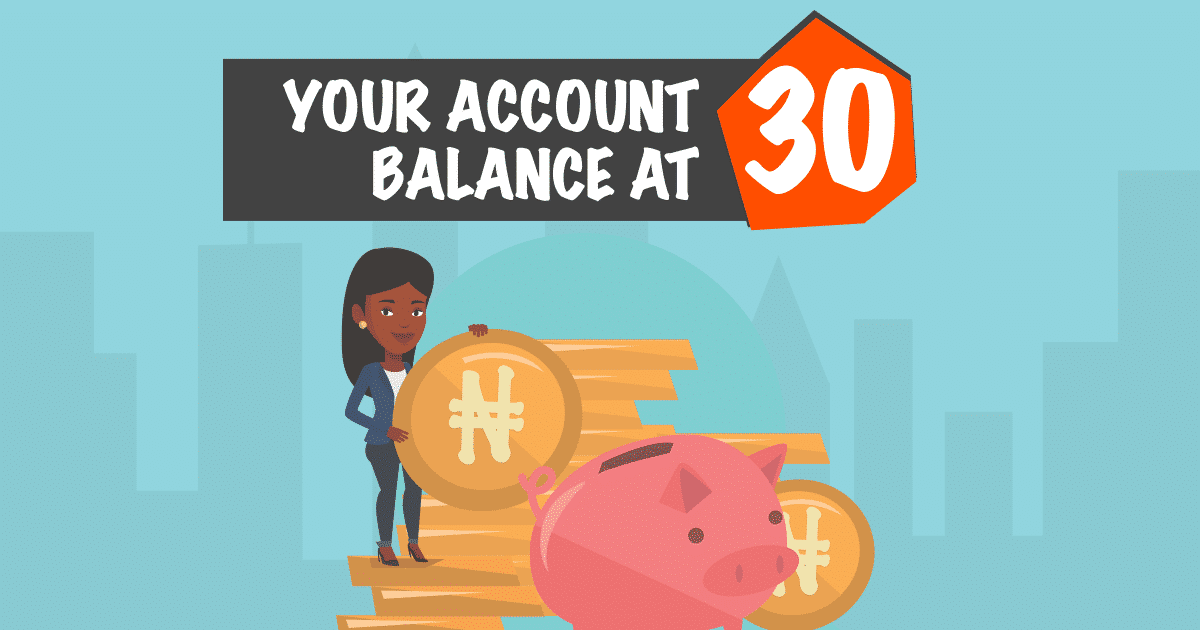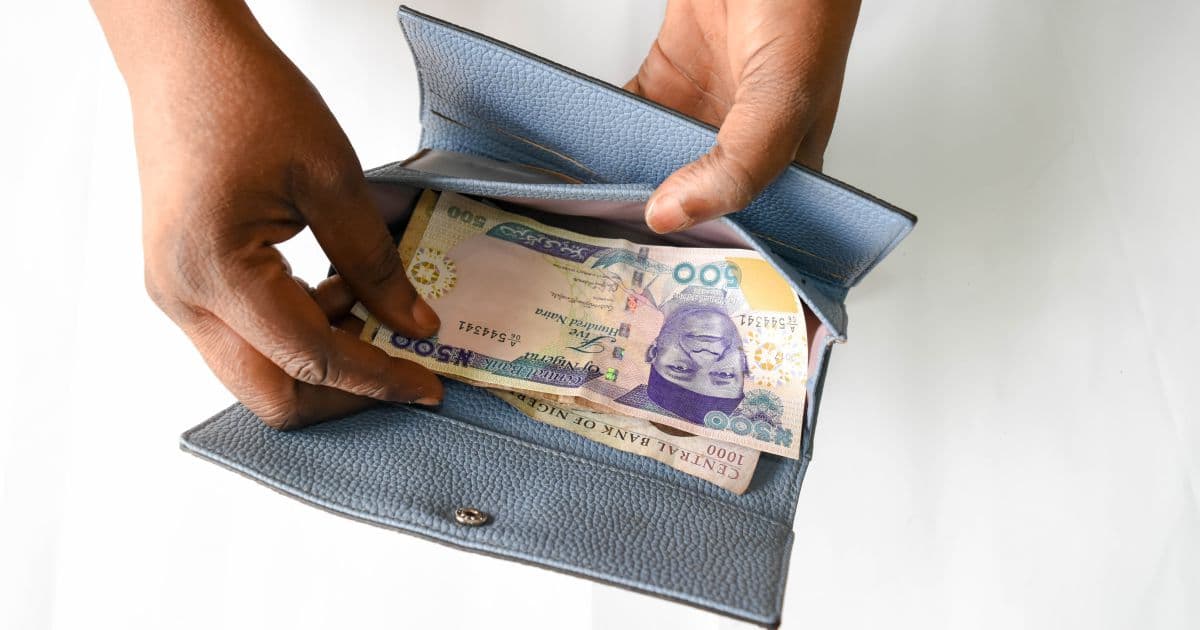The golden rule is that by age 30, the money you have saved should correspond to your annual salary. This gives you a very clear picture of how much you need to save. If you earn N180,000 monthly, by the time you are 30, you should have N2.1 million at the bare minimum.
This figure should include the money you have in your savings account as well as the money you have invested in business opportunities such as Forex, money market instruments and the stock exchange.
As difficult as this might sound to you right now, it is achievable. Let’s take a look at some strategies that will help you accomplish this goal by the time you are 30.
Table of Contents
Cut Your Current Spending
If you are serious about setting aside a sizable portion of your salary, you need to cut out things you don’t need. To make this easier, split your accounts into different categories. Have a retirement account, an emergency account and expense account for your frequent use.
Start Saving Early
It is easier to save more by the time you are 30 if you start early. Let’s put this into perspective. If you start saving at 20 then you will have 10 years worth of savings by the time you are 30 as opposed to starting at 27? The earlier you start, the more money you get to save. You don’t have to save a large chunk of your salary every month. Set a realistic target of about 15% or more if you are comfortable.
If you earn N100,000 monthly and you save N15,000 monthly, this would be N180,000 at the end of the year and N1.8 million at the end of 10 years. In the course of time, you are likely to get a promotion/raise or change jobs and therefore, have the opportunity to save much more.
Generate Another Source of Income
A quick way to save more is by creating another source of income. This could be a side hustle, an investment or a part-time job that doesn’t hurt your full-time job. This translates into additional income for you, which means you have more money at your disposal. For example, the fact that you have a 9-5 job does not mean you cannot be a merchant with a store on Nigerian e-commerce stores like Konga. Of course, you would have to delegate some but it can be done with careful planning. Other online opportunities open to you include affiliate marketing and specific aspects of digital marketing.
If you are interested in starting a business, you can take advantage of low-interest loans from a trusted Nigerian bank.
Don’t Compete or Compare
The fact that your colleague just bought an iPhone at Computer Village in Ikeja doesn’t mean this should suddenly become your priority. Your needs will remain insatiable as long as you remain human. Don’t rush off to buy trending fashion wear or accessories simply because you want to keep up with your friends. This will hurt your capacity to meet your saving target. Don’t waste money.
Automate Your Saving
Set up your account in an automated way that allows money to be transferred to your savings account on a monthly basis. This helps you overcome the trap of trying to save what is left of your monthly salary. The account that gets credited does not have to be a saving account. It could be an investment account like your money market account, a retirement account or a forex account that you trade with.
Focus on the Big Three Expenses
Three of your biggest expenses are your accommodation, food and transportation. Find a way to cut down on your daily and monthly spending on these big three expenses. If you spend a lot on transportation, consider leaving home slightly earlier than you currently do. If you live on the mainland and work in Ikoyi, Victoria Island or Lekki, use the BRT instead of boarding the yellow commercial buses.
If you own your own car, consider using public transportation on certain days of the week. “If you live around Costain and work between Marina and CMS, you are going to spend more if you decide to drive. It works for me,” explained Shirley Ajayi, who resides on the mainland.
If you live alone, you don’t necessarily need a huge apartment especially if you are looking to save especially if you’re yet to have children.
Don’t Blow the Extra Cash
You’re certain to have some extra cash come your way from time to time. Instead of spending this money on designer bags, a painting, suede shoes, leather wristwatches or a new phone, save it or invest it in a business or an asset.
The most efficient way to deposit it into your account immediately. The longer you keep it accessible, the higher your likelihood of spending the money.
With the average age of the Nigerian graduate pegged at 24, it is imperative that you start saving as early as possible especially if you are a Nigerian professional who still enjoys the luxury of living in your parents’ home.
One formula to work with is the 50/30/20 rule. Under this rule, you spend 50% of your salary on necessities, 30% should be spent on things that you consider discretionary while you save 20% of your salary or 15% at the bare minimum.










